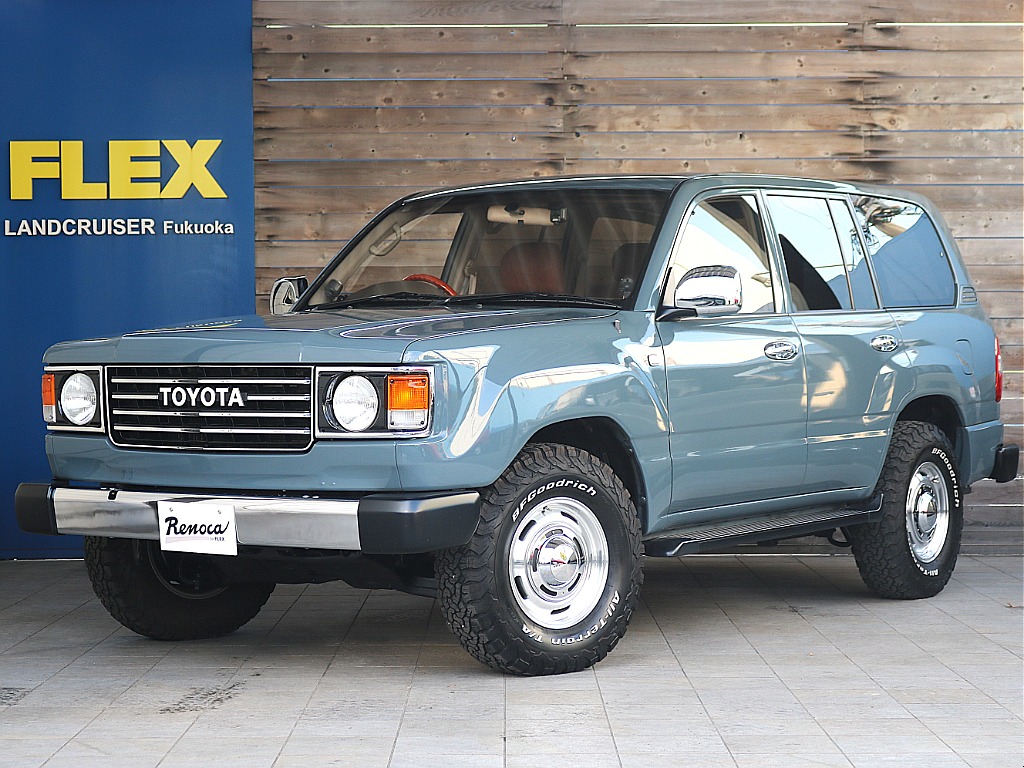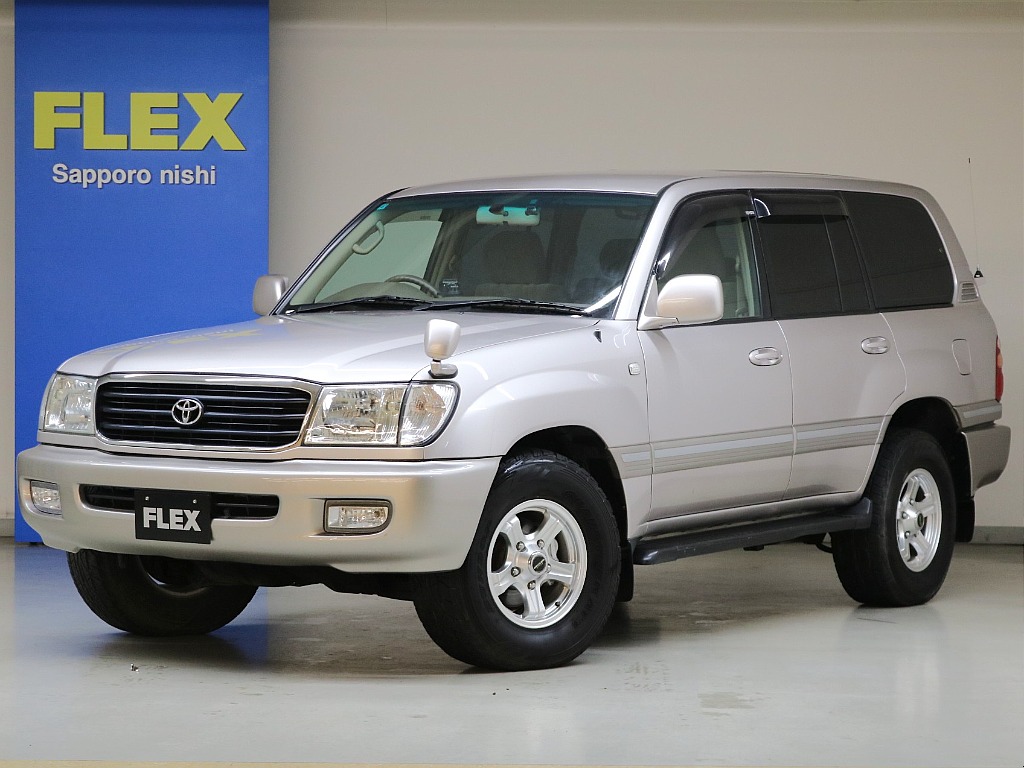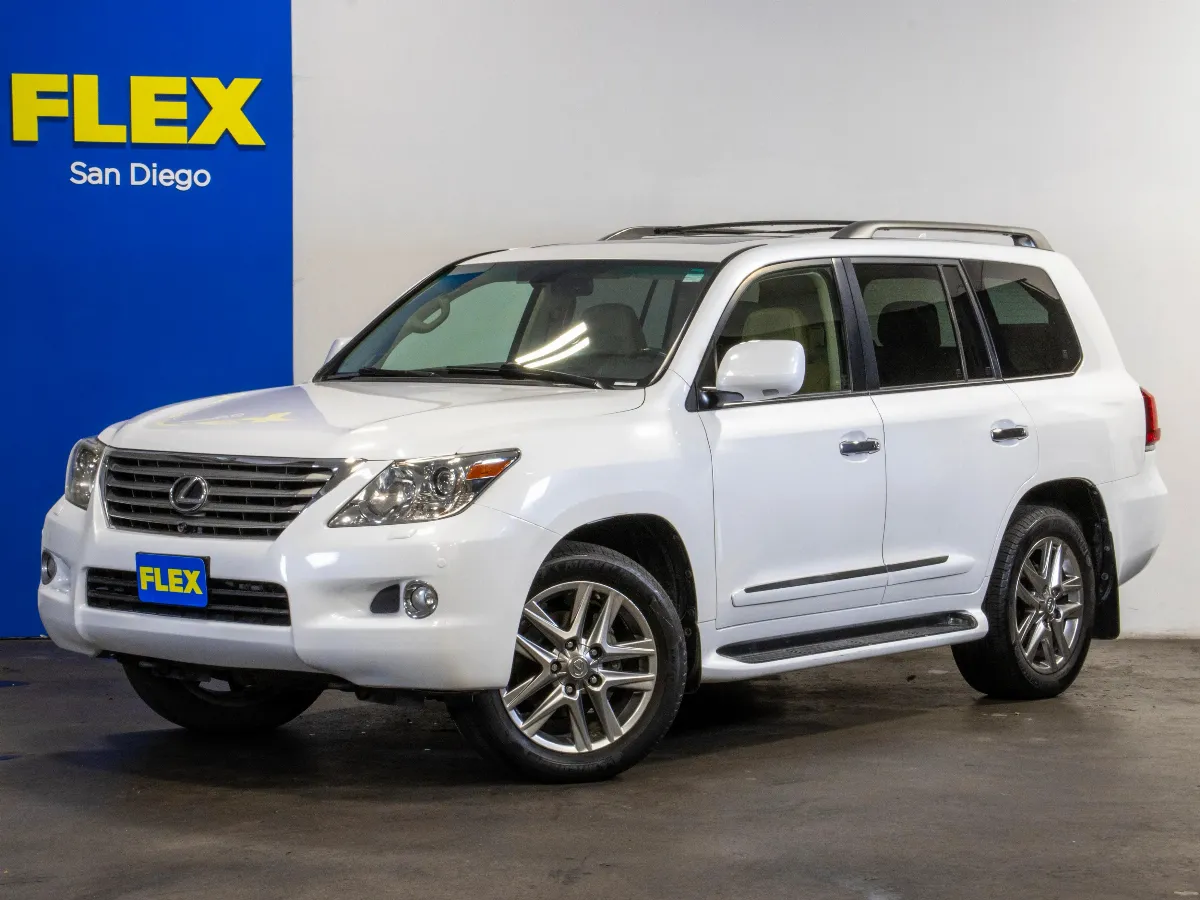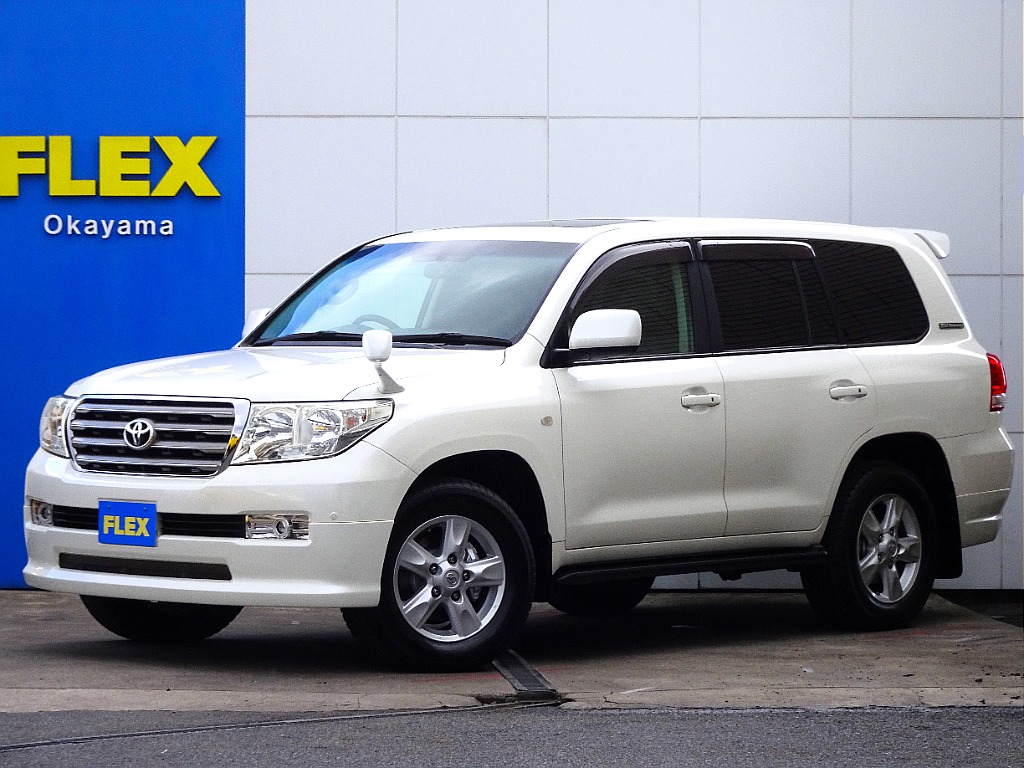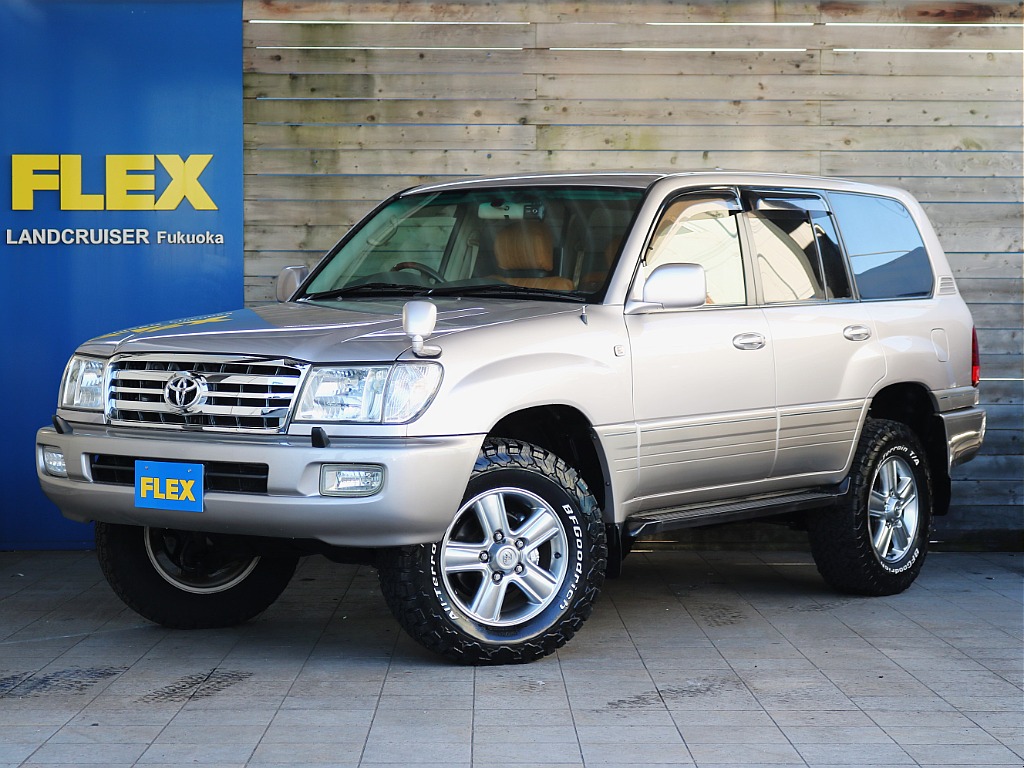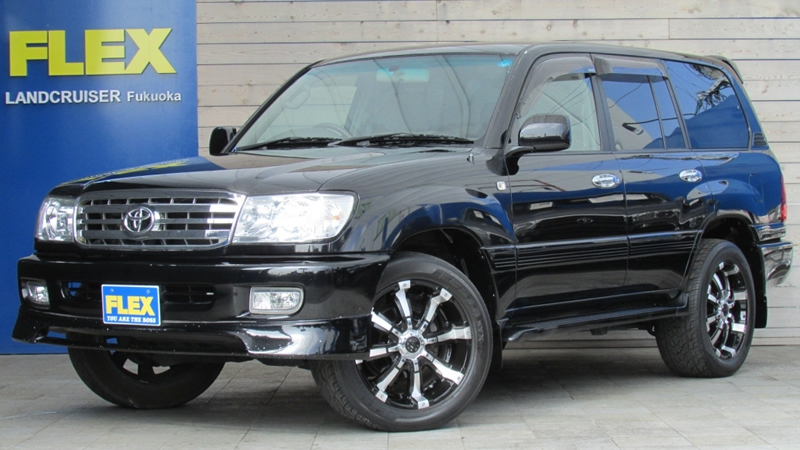The Toyota Land Cruiser 100 Series replaced the retired 80 Series models and was on the market from 1998 until 2007. Here are the Toyota Land Cruiser 100 Series engine specs:
- Engine Type: V8
- Maximum torque: 43.0kg・m (421.7N・m)/3600rpm 311 lb.-ft.
- Maximum output: 235ps(173kW)/4800rpm 232 HP
- Transmission Gearbox: 4AT
- Fuel Tank Capacity: 25.4 gallons
- Fuel Consumption: 14.3(MPG)
- Size: L 201.77 in, W 76.38 in, H 74.41 in
- Curb Weight: 5401 lbs
*Specs may vary depending on the pre-owned base vehicle
What is Land Cruiser 100?
Introduced in 1998, the Land Cruiser 100 Series was a step up in terms of luxury, refinement, and performance from its predecessor, the 80 Series. It was designed to better cater to the growing SUV market in North America, Europe, and other affluent regions while still retaining its off-road prowess.
What year is a 100 series Land Cruiser?
The 100 Series Land Cruiser was introduced in 1998 as a replacement to the 80 Series. It received a facelift in 2002 when Toyota added Night View, which is an active automatic night vision system using headlight projectors and cameras to project an image of the road in front of you on the bottom of the windshield. It was also the first Toyota to have roll-over sensors and control logic.
When did they stop making 100 series?
The last LC 100 rolled off the assembly line in 2007.
What kind of engine is in the Land Cruiser 100?
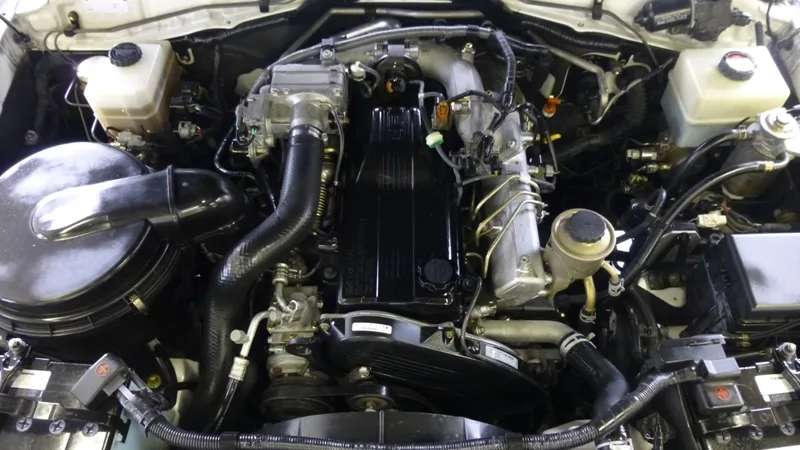
The most common engine used in the Land Cruiser 100 Series was the 2UZ-FE 4.7-liter V8 engine. It gave the Land Cruiser 100 Series a horsepower of 235 with a torque of 320 lb.-ft, which yields the top speed of 112 mph / 180 Km/h.
Other 100 Series Land Cruiser engine options included the 1HZ or 1HD-FTE 4.2-liter straight-6 diesel, but this was limited to certain countries, which did not include any country in North America.
For an overview of the engine options and the global market, read our post here.
How long do the Land Cruiser 100 Series Engines last?
If you want to know the lifespan of the Land Cruiser 100, then look at how it is driven and maintained. Like all vehicles with mechanical parts, as it ages, the more repairs it will need. However, it is not unusual to get over 200,000 miles with proper maintenance, and some owners swear they have Land Cruiser 100 Series engines with over 300,000 miles on them.
At one point, there was a 1999 Land Cruiser 100 Series for sale on the Auto Trader website that had 344,000 miles on it.
You can see more information on the Land Cruiser 100 Series engine in this article.
Why is the Land Cruiser 100 Series so powerful?
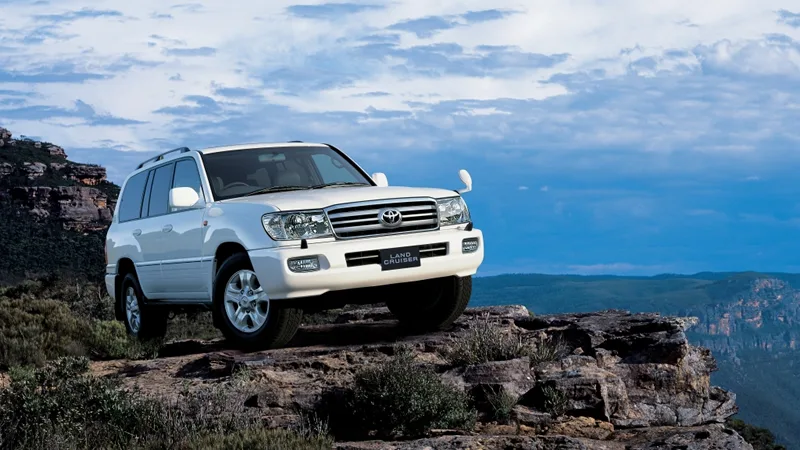
The Land Cruiser 100 Series is considered a powerful 4WD for several reasons that include a large engine, sturdy construction, and advanced engineering.
The LC 100 is equipped with a 4.7-liter V8 capable of 235 horses and 320 lb.-ft. of torque that delivers smooth performance while being reliable. It is designed with a cast iron block for high-torque pickup and low revs, which improves its durability. It has aluminum DOHC cylinder heads that take some of the weight off the engine.
Another factor that adds to its power is the ladder frame construction. It is designed for rough terrain, and the suspension technology improves off-road performance.
The Toyota Land Cruiser 100 Series comes standard with a full-time 4WD, low-range, and center differential lock with dashboard activation (only the 1998 and 1999 had a locking rear differential that used a control knob by the steering wheel.) These features delivered excellent traction off-road and could be why the Land Cruiser is so popular.
The Land Cruiser 100 Series is powerful both on- and off-road in a full range of driving conditions, which may be why the Land Cruiser is the best choice for an SUV.
Here is an article that defines the Land Cruiser 100 Series features that contribute to its reputation for being a powerhouse.
Which is better, the Land Cruiser 100 Series petrol or diesel?
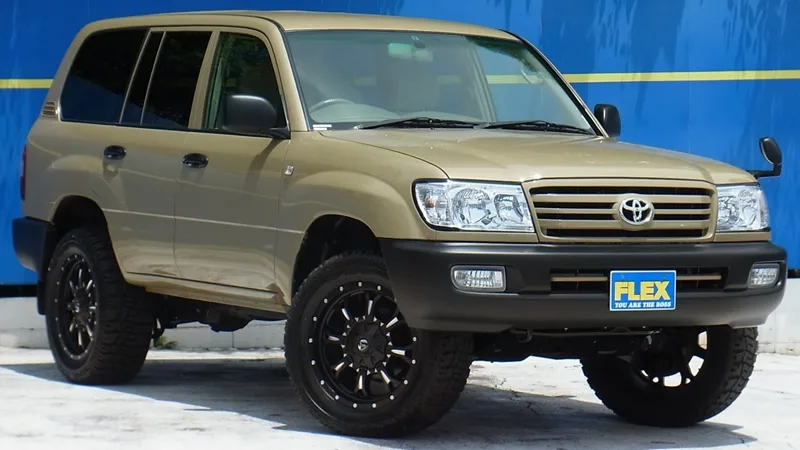
When it comes to choosing between a gas-powered engine and a diesel engine, you will not have a choice if you live in the United States. Toyota did not manufacture the Land Cruiser 100 Series diesel for North America, so only the petrol engine can be found in North America.
However, if you are where you can choose your 100 Series Land Cruiser fuel type, here are some differences to consider in the Land Cruiser 100 petrol vs diesel debate:
Gas or Petrol
- A smoother and quieter ride
- Better acceleration
- Better performance at higher speeds
- Fewer service requirements
- Lower fuel costs in many markets
Diesel Powered
- Higher torque
- Better fuel efficiency
- Durable
- Better for off-road and heavy-duty driving
- They may be more expensive to maintain
If you are looking for more in-depth information on this subject, click here to read our post about the fuel differences between the two engines.
Does 100 Series Land Cruiser use premium gas?
Toyota set the octane rating for the 100 Series Land Cruiser fuel type at 87, so anything lower than 87 can cause an engine knock, which could lead to damage to your engine.
Premium, higher-octane fuels are not necessary, and they can be costly. Toyota does recommend that you do not use any gasoline with more than 10% ethanol in it.
Because the fuel affects the engine’s longevity, it is best to stay with Toyota’s recommendations to get the optimal 100 Series Land Cruiser gas mileage and performance.
You can read more about the Land Cruiser 100 Series engines here.
Is the Land Cruiser 100 Series fuel efficient?
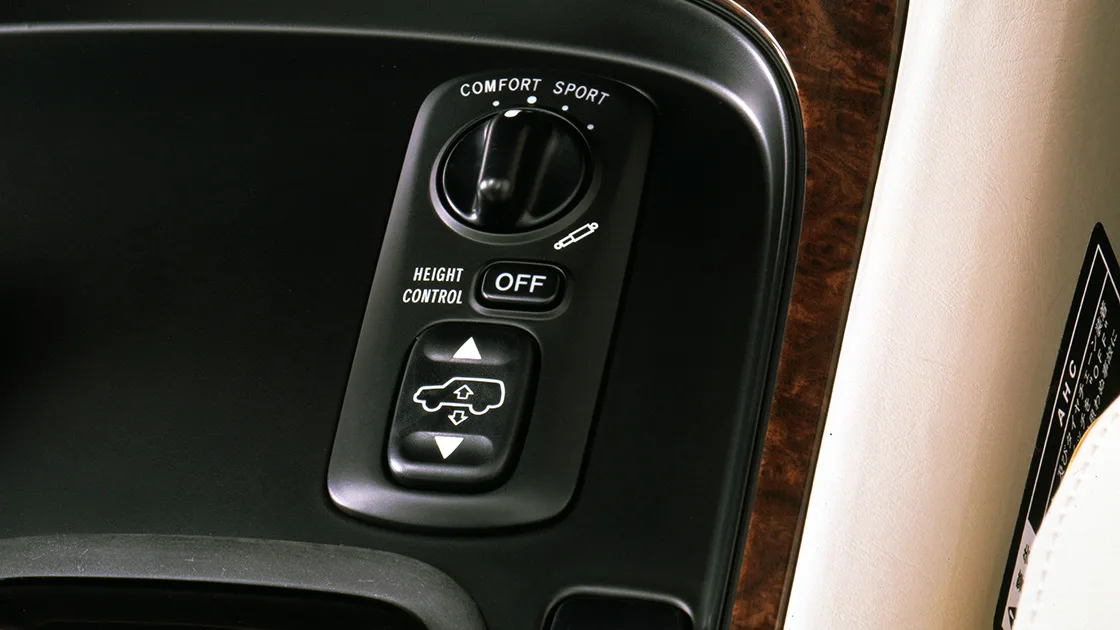
Under normal circumstances, the 100 Series Land Cruiser gas mileage is around 14 MPG in the city when equipped with the 4.7-liter VE engine. With the same motor, the highway mileage is around 17 MPG.
The Land Cruiser was designed for off-road and heavy-duty driving, so the Land Cruiser 100 fuel consumption was never a big factor in the development of the vehicle. However, with the introduction of the LC 100, there was little more attention paid to the MPG since it wanted to be competitive in the SUV market.
While not available in many markets like the North American market, the 4.2-liter diesel was a bit more efficient with a 100 Series Land Cruiser MPG of 15 in the city and around 18 MPG on the highway. These numbers will fluctuate based on driving conditions.
If you exercise good driving habits like having properly inflated tires, no excessive idling, and driving at moderate speeds, you may be able to improve your 100 Series Land Cruiser fuel economy.
If you need more information about the LC 100 engine, click here.
How big is the fuel tank on a 100 series?
The fuel tank on the 100 Series has a 25.4 gallon capacity, which will take you approximately 363 miles depending on how you drive. Additionally, there are 40 gallon auxiliary tanks available as aftermarket options that will increase your fuel capacity.
Are 100 series Land Cruisers full time 4WD?
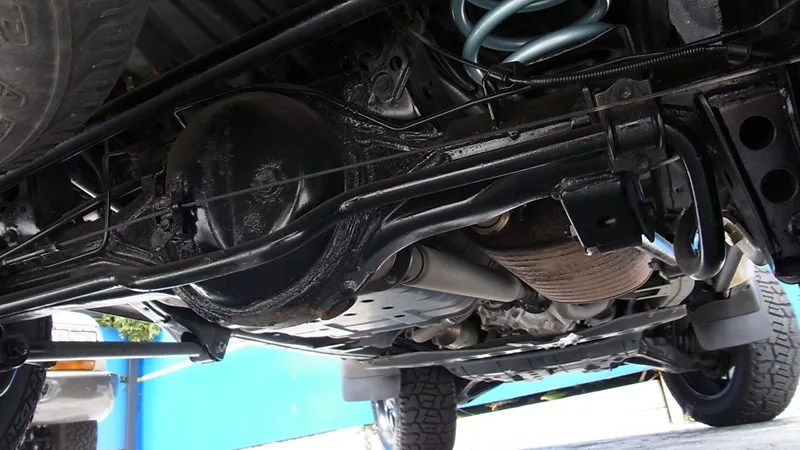
Yes, the 100 Series Land Cruiser has full-time 4WD. Since the original intent for the Land Cruiser was for off-road and heavy-duty use, it made sense to leave it in 4WD, so there would be continuous traction to all four wheels.
The 100 Series Land Cruiser 4WD system consists of a center differential lock button on the dash on the 2000-2007 models. The 1998 and 1999 models had a control knob by the steering wheel for the locking rear differential.
Looking for more information on the history of the Land Cruiser Series 100? Click here to read more.
How long will a Land Cruiser 100 last?
The question of how long do Toyota Land Cruisers last is best answered by how and where you drive yours, as well as how well you maintain it. If you wonder how many miles can a Land Cruiser last, then you need to check out some of the “for sale” ads in trade publications like Auto Trader. Some of those LC 100s have well over 200,000 miles on them.
The Land Cruiser is best known for being reliable, and its construction makes it durable enough to take on some of the toughest landscapes. It was tested and found true in the Australian outback, which is some of the most extreme driving conditions anywhere in the world.
Obviously, the better you care for your LC 100, the longer it will last.
If you want to know more about how long a Toyota Land Cruiser 100 Series will last, read this article.
How much can a 100 series Land Cruiser tow?
As equipped, the standard towing capacity is 5,000 pounds, but if you have one of the upgraded fully-loaded models, you should be able to tow 8,100 pounds.
How many seats are in the Land Cruiser 100 Series?
From the factory, the standard was five seats, but when these SUVs were delivered to the United States, they had optional third-row seats pre-installed for an extra $1,100. Eventually, the third-row became standard.
What problems do Land Cruisers 100 series have?
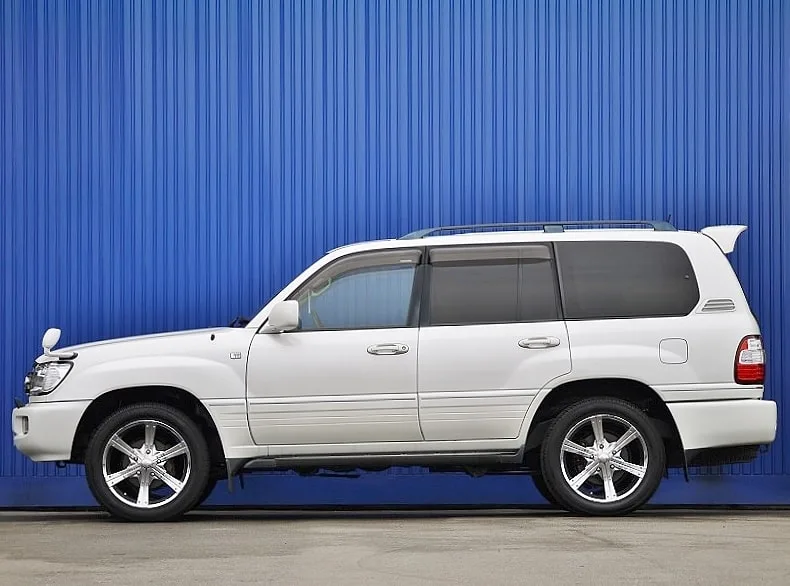
Most Toyota Land Cruisers 100 Series problems are the same problems shared by all vehicles. Some of the Land Cruiser 100 common problems may be:
- Body Rust – especially for those vehicles along the coastlines or where there is road salt
- Suspension – bushings, ball joints, and shocks wear out
- Electrical – window motors, locks, wiper motors, etc.
- Engine – timing belt, gaskets, seals, etc.
As you can see, these are the same types of problems found on all SUVs, which is why maintenance is so important.
For an overview of the entire LC 100 Series, click here to read about how it has evolved over its lifespan.
Why is 100 series so good?
Everyone knows the reputation Toyota Land Cruisers have for being so dependable and durable, but there are other reasons that people like the 100 Series. Here are a few of them:
Off-Road Capability
Full-time 4WD, low range gearbox and locking center differential (some models have a rear locking differential) all combine to give the LC 100 Series the ability to conquer most terrain.
Engine Performance
The perfect blend of power and torque make the LC 100 at home on the highway and equally capable of towing everything you own.
Comfort
While it is an off-road vehicle, it does share its luxury interior with the Lexus, so the seats are comfortable and the interior is spacious.
Safety
Toyota knows safety, and they gave the Land Cruiser 100 Series the most advanced systems for on the road and off.
Aftermarket Support
If you need accessories or upgrades, the aftermarket options let you customize your LC 100 to meet your needs.
Value
You can expect the LC 100 to hold its value, making it easy to resell without losing a lot of money.
Community
This is not so much about the SUV as it is the people who own Land Cruisers. You’ll find a vast and active group of enthusiasts in every corner of the world who love to talk about their Land Cruisers.
Which Land Cruiser is powerful?
When it comes to the most powerful Land Cruiser, Toyota says the 300 Series has all of its predecessors beat. They cite a very powerful, yet small, turbo-diesel engine under the hood. While the 3.3L twin-turbo V6 diesel is lauded by Toyota, people are lining up to get their hands on the V8 in the 200 Series.
What to look for when buying a 100 series Land Cruiser?
Like shopping for any used vehicle, there are things to look for when buying a 100 Series Land Cruiser. Since there weren’t many 100 Series sold in the United States, you might be just shopping for color and model year changes.
Here are some of the most common things to check out before you put your money down:
- Body – Check the body for filler and bad paint.
- Service Records – Always check a used car’s service records.
- Engine – Listen for strange noises or rattles.
- Suspension and Steering – Is there too much play in the steering or uneven tire wear?
- Aftermarket Parts – Some independent distributors installed aftermarket parts of questionable quality.
- Locking Differential – 1998 and 1999 models
- Traction Control – 2000 year and up models
- Navigation – Anything from 2003 and up sold in Alaska, Hawaii, and Puerto Rico didn’t have a navigation system because those area maps were unavailable.
- Bluetooth – Added in 2004 and paired with navigation
Other than these items, always make sure there are no leaks, decayed rubber, oil spray in the engine, and other signs of excessive wear and abuse.
For more information on the trim levels, their features, and more Land Cruiser 100 specs, check out this article.
What are the similar vehicles to the Land Cruiser 100?
LX470 is often mentioned as one of the similar vehicles to the Land Cruiser 100 as they share a platform, although there are a few differences between them. For more details, check out the key differences between the Land Cruiser 100 and the LX470.
Ask us anything!
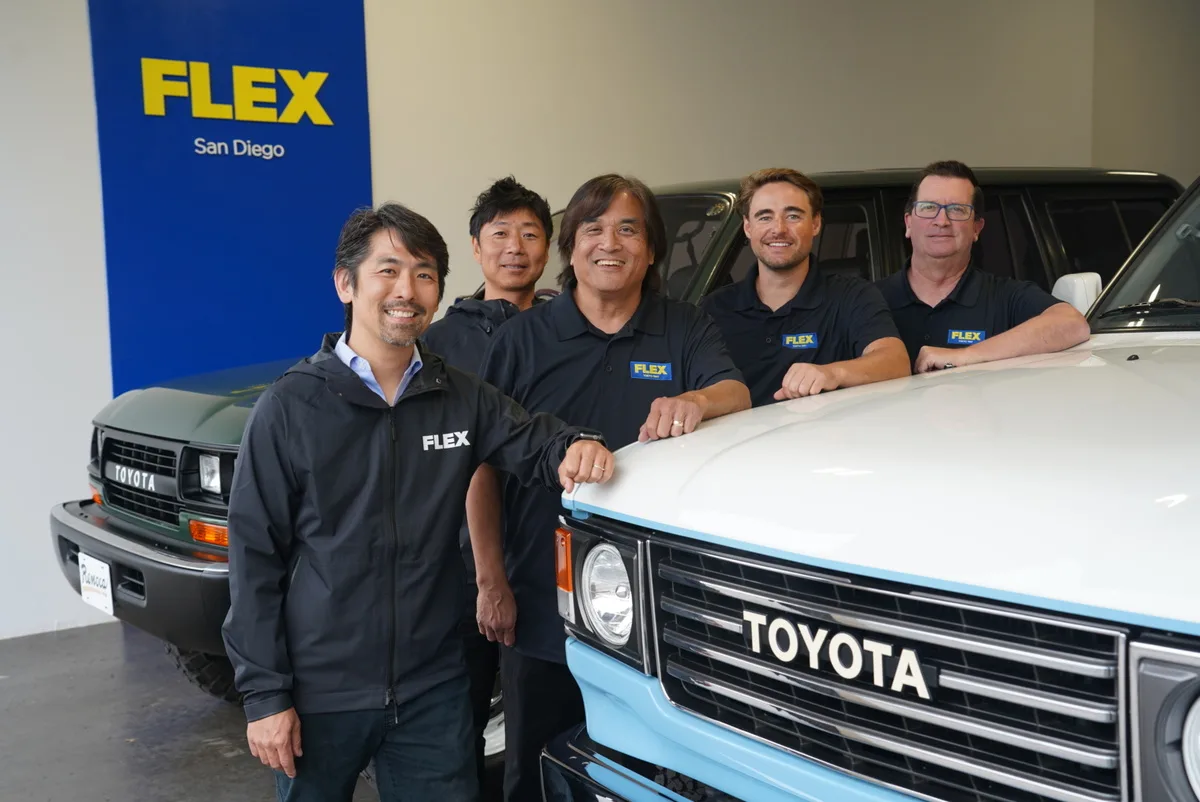
Having been the top Land Cruiser dealership in Japan, we know 100 series Land Cruiser like the back of our hands. If you have any questions, feel free to contact us!
Looking for a JDM of your dream?
FLEX is one of the top Land Cruiser vendors in Japan, and our specialists will assist you to acquire your dream vehicles.


